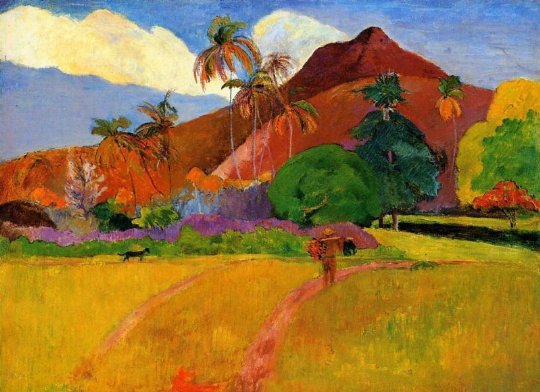This is a holiday because the Russian Lent begins Monday.
I went out this morning to ski in Sokolniki Park with a party mainly American, of which Mrs. McGowan and her charming daughters were the moving spirits.
In the evening G. and I went to a dance at the big house beyond the Red Gates, and had a most amusing time. On arriving we found our hostess' younger sister in command, supported by her fat step-brother, a lieutenant at home for a few days on leave. In one corner of the elaborately furnished salon sat the two attractive Misses Smith surrounded by all theEnglish-speakingmen; in another corner a group of Russian-speaking damsels chatted with an awkward-looking officer and an equally awkward-looking civilian; several unattached men hovered about restlessly. No one had a notion what to do. The younger sister giggled charmingly; we admired the paintings, some of them the handiwork of our hostess, and talked desultorily. So an hourpassed. Then our hostess came in from the Charity Bazaar, clad in a brilliant peasant costume; with her came two of her friends dressed as gypsy fortune-tellers—dark-haired dashing creatures,—a pretty blond girl, and a funny active youngster with a little yellow beard. Things immediately woke up. Dancing began, all waltzes of course. The Smith girls waltz very well, Mme. M. moderately well, the rest quite badly. I took a great liking to one of the gypsies, whose first name was Natasha, and went out to supper with her. She talked French charmingly but no English. Beyond me two elderly men in sack-suits sat on either side of the hostess, and across the table was a bearded uncle-like fat man with celluloid cuffs. (In the provinces celluloid linen is a sign of nobility.) We walked home at 2 a. m. with the enthusiastic little bearded chap. It was very cold and there were no cars running, nor any isvoshchiks to be had.
"A Portrait of the Artist as a Young Man" is a book to buy and read and lock up, but it is not a book to miss.
The value of Mr. Joyce's book has little to do with its incidental insanitary condition. Like some of the best novels in the world it is the story of an education; it is by far the most living and convincing picture that exists of an Irish Catholic upbringing. See more
Petersburg is full of evil rumours. And not only rumours, either. There is some very vague talk of a workers’ demonstration arranged to coincide with the opening of the Duma on 27th. I think this is unlikely. I don’t imagine we will see anything of the sort. There are many reasons, but the most important, (which makes it quite unnecessary to list the others) is the fact that the workers will not support the Duma coalition.
I was called to the Empress, to find that she looked unwell and tired. I did not stay long; she was quite affectionate but it was clear her mind was elsewhere. I told her I should like to go to Petrograd for a longer period of time. I shall pass the Lenten fast with them if the Lord sees fit. I see that this will be a good thing to do: there is no resentment, but the situation has become more or less clear.
The bread queues in Petrograd have been getting longer and longer, although the wheat and rye has been rotting all along the Great Siberian Railroad and in the south west regions. The city garrison, which consisted of new recruits and reserves was not, of course, a reliable enough force to maintain order in the event of serious disturbances. I asked the military command if they were planning to bring more dependable regiments back from the front line. I received the reply that thirteen guard cavalry regiments were expected to come from the front shortly.


Having found out that I was to present a report to the Emperor on the following day, Rodzianko called on me in my hotel. Our conversation stretched deep into the night and finished at 2am. Wishing him a good night, I promised once again to try and make the Tsar see sense and issue the reforms of the so-called “Progressive Bloc”.
The “Progressive Bloc” was the name given to an assembly of party leaders and influential statesmen from the State Duma and State Council. Given the state of the country, their demands in early 1917 were very modest. The most important of these demands was that the Tsar would issue a decree granting full authority to Prime Minister Alexander Trepov to select cabinet ministers for the government. After the selection, the cabinet was to be accountable not to the Duma but to the Tsar personally.
We’ve had the most unbearable frosts. I have shut the library, which I am not heating, and am working in my bedroom, which I can barely keep above eight degrees. I’m feeling bitter about my 74 years, and about the fact that, while the horizons for constructive and creative minds are endlessly expanding, I personally cannot work for more than four or five hours in a day.
I do not know whether it will be possible to leave soon, for thousands of reasons, but I really want to and I want to see you. I'm quite through with stupidity, which here abounds.
I’m having a very bad winter this year. I’ve been in poor health for 6 weeks already and the last bout had me feeling especially awful; I suffered from a terrible pain in the bony ridge of my brow.
This evening I gave a dinner to the Grand Duchess Marie Pavlovna and her son, the Grand Duke Boris. My other guests were Sazonov, Shebeko, the former ambassador to Vienna, Princess Marie Troubetzkoï, Princess Bielosselsky Prince and Princess Michael Gortchakov, Princess Stanilas Radziwill, M. and Madame Polovtsov, Count and Countess Alexander Shuvalov, Count and Countess Joseph Potocki, Princess Gagarin, M. Poklevski, Madame Vera Narishkin, Count Adam Zamoïjski, Benckendorff, General Knorring and my staff. See more